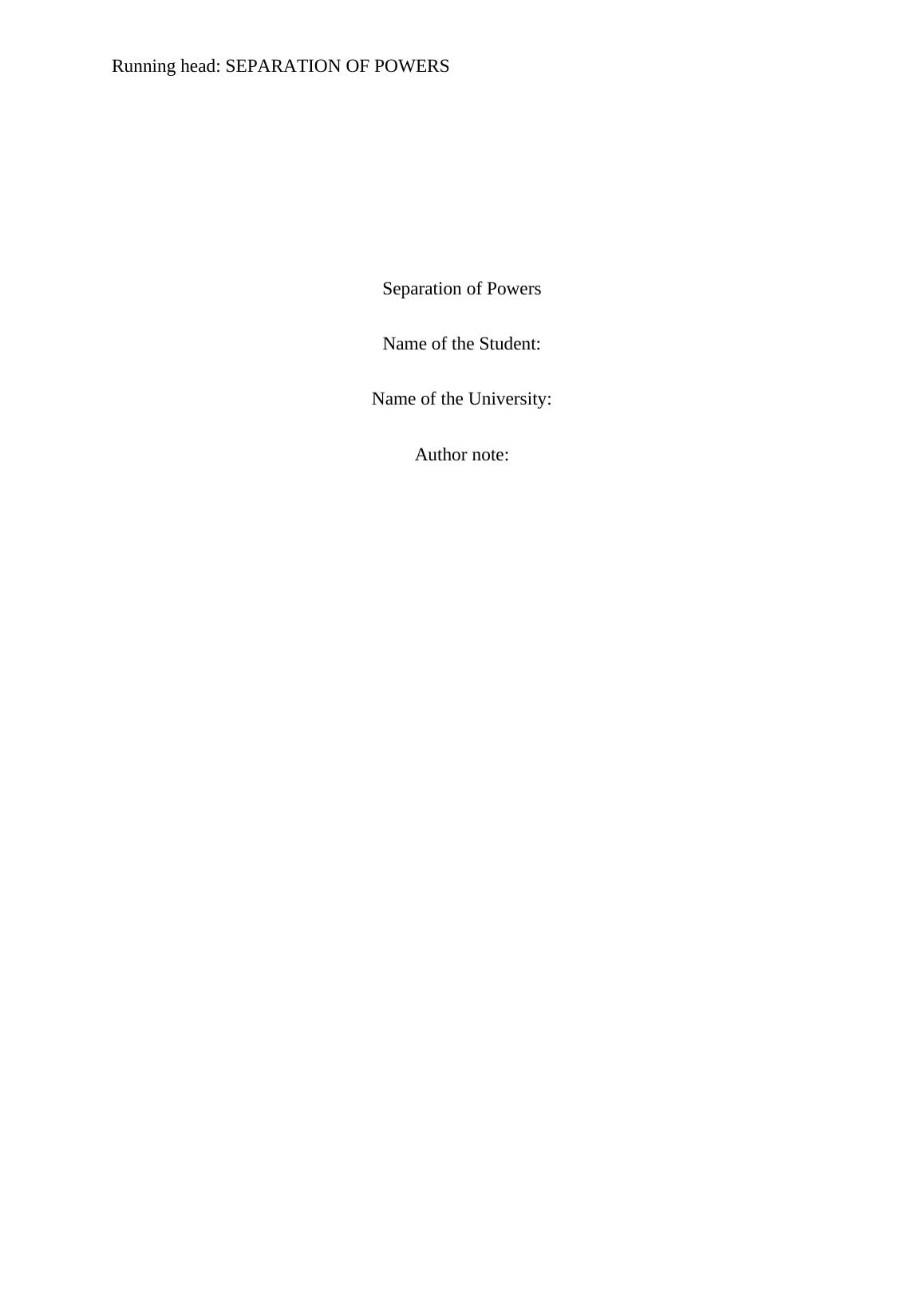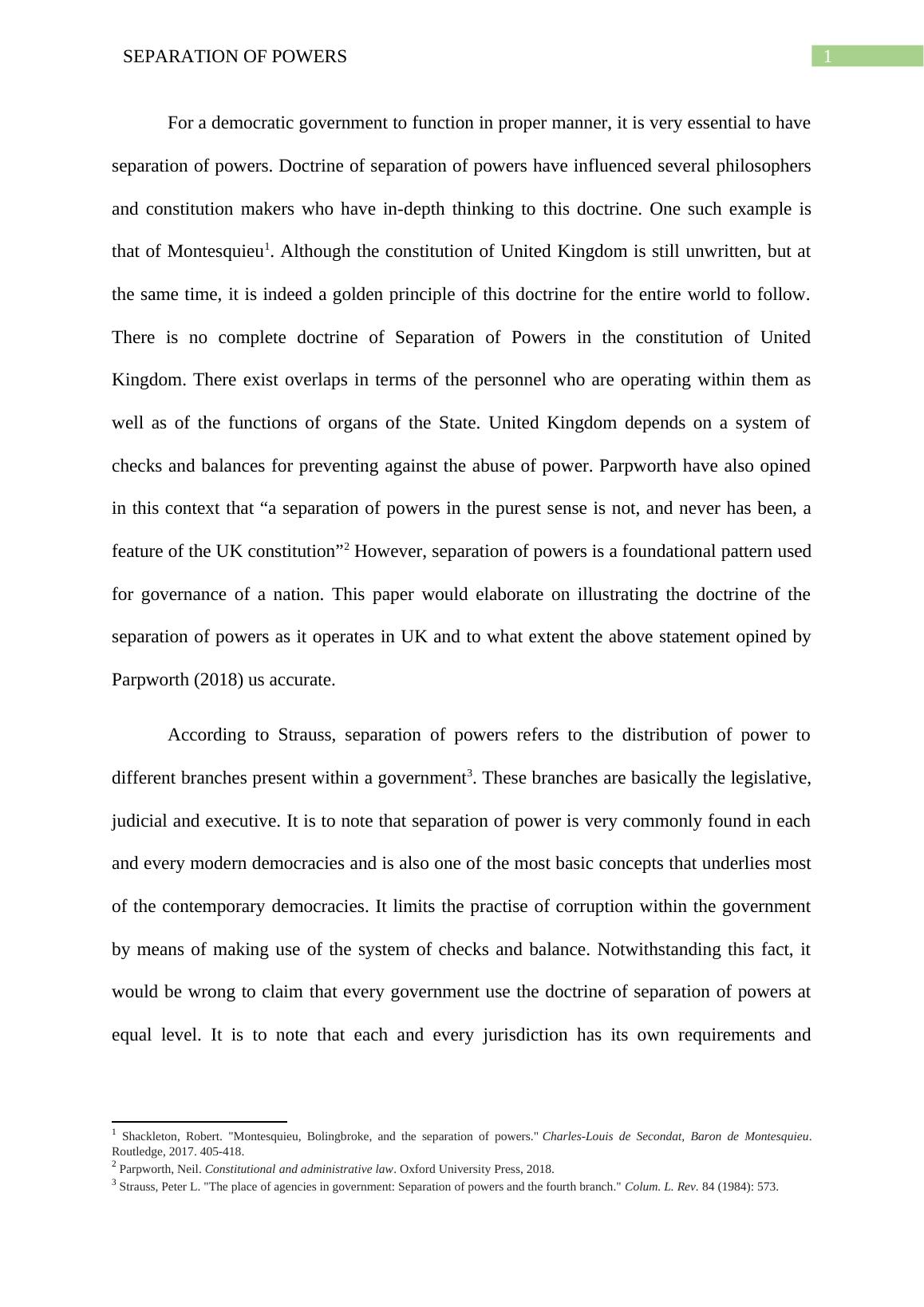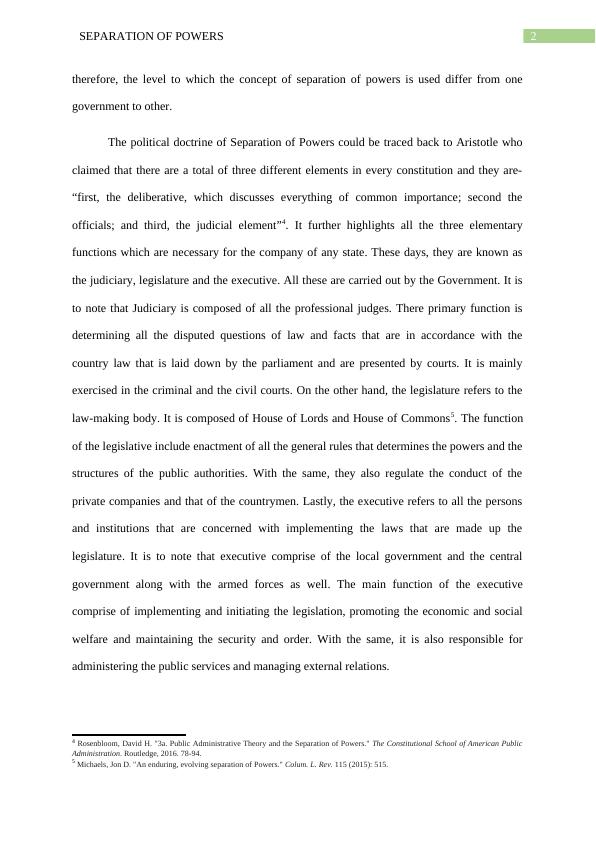A Golden Principle of Separation of Powers
Write a 2,000 word essay explaining and illustrating the doctrine of the separation of powers in the United Kingdom and evaluating the accuracy of the statement 'A separation of powers in the purest sense is not, and never has been, a feature of the UK constitution.'
9 Pages3114 Words303 Views
Added on 2023-04-22
A Golden Principle of Separation of Powers
Write a 2,000 word essay explaining and illustrating the doctrine of the separation of powers in the United Kingdom and evaluating the accuracy of the statement 'A separation of powers in the purest sense is not, and never has been, a feature of the UK constitution.'
Added on 2023-04-22
ShareRelated Documents
End of preview
Want to access all the pages? Upload your documents or become a member.
The Doctrine of the Separation of Powers-Normative Analysis
|8
|1816
|176
Doctrine of Separation of Powers and Constitutional Reform Act 2005
|11
|3044
|65
Doctrine of Separation of Powers
|3
|785
|49
Separation of Power of the British and U.S. System
|12
|3423
|450
Separation of Powers in the UK Administrative Structure
|8
|1812
|24
Assignment on Comparative Legal
|10
|3596
|260



